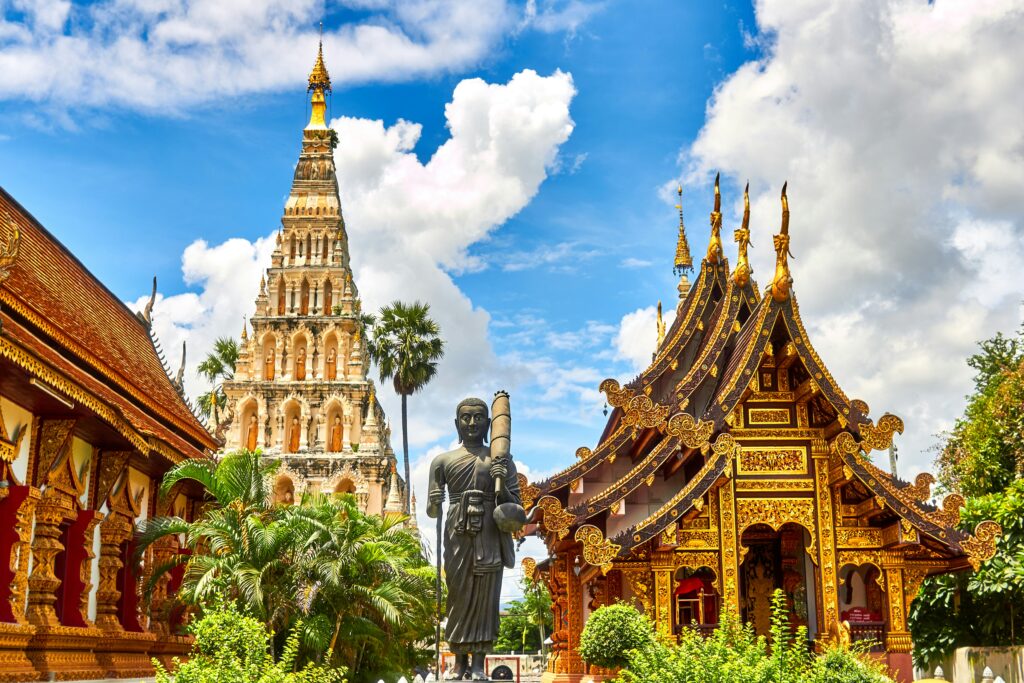5 Ways Foreigners Can Own Property in Thailand
-
5 Ways Foreigners Can Own Property in Thailand: A Complete Guide
Discover the best ways for foreigners to own property in Thailand. This guide covers legal options, investment tips, and key locations for foreign property ownership in Thailand.
Introduction: Can Foreigners Own Property in Thailand?
Thailand is a top destination for expats, investors, and retirees looking to own property in Thailand. However, many are unsure about the legal process of foreign property ownership in Thailand. While Thailand’s property laws are strict, foreigners can still invest in Thai real estate with the right knowledge and planning.
In this guide, we’ll explore how foreigners can own property in Thailand, the legal options available, and key considerations when buying property in Thailand.
Can Foreigners Own Land in Thailand?
Under Thai property laws, foreigners cannot own land directly. However, there are legal methods that allow foreigners to acquire property rights in Thailand:
1. Condominium Ownership: The Easiest Option
The most straightforward way for foreigners to own property in Thailand is through condominium ownership.
Key Facts:
- Foreign Ownership Quota: Foreigners can own up to 49% of the total floor space in a condominium project.
- Eligibility: Funds must be transferred from abroad in foreign currency to qualify for condo ownership.
Benefits:
- Simple legal process
- Full ownership rights (similar to Thai citizens)
- Ideal for vacation homes or rental investments
2. Leasehold Agreements: Long-Term Property Use
Since foreigners cannot own land, they can enter into lease agreements to use land for extended periods.
Key Points:
- Lease Duration: Up to 30 years, with an option to renew for another 30 years.
- Leasehold vs. Freehold: Leasehold arrangements do not provide outright land ownership but offer a practical alternative for long-term property use.
Benefits:
- Cost-effective compared to land ownership
- Suitable for residential or commercial use
3. Setting Up a Thai Company: Owning Land Through a Business Entity
Foreigners can set up a Thai company to legally own land in Thailand.
Steps Involved:
- Company Structure: At least 51% of shares must be owned by Thai nationals, with 49% owned by foreigners.
- Company Registration: The company must be registered with the Department of Business Development.
Considerations:
- Must have a genuine business plan
- Legal risks if used solely for land ownership
4. Buying Property Through a Thai Spouse
Foreigners married to Thai nationals can own property through their spouse.
Key Considerations:
- Property must be registered in the Thai spouse’s name.
- A pre-nuptial or post-nuptial agreement is advisable to protect ownership rights.
5. Special Freehold Land Ownership for Foreigners
In some cases, foreigners may own land under special investment projects.
Examples:
- Government-approved developments in economic zones
- Business-related land ownership under Thai investment laws
Important Considerations When Buying Property in Thailand
1. Perform Due Diligence
Before purchasing any property, check:
- Legal title and ownership records
- Debt and encumbrances on the property
- Seller’s legitimacy
2. Hire a Reputable Lawyer
Navigating Thailand’s property laws can be complex. A real estate lawyer ensures legal compliance and protects your investment in Thailand.
3. Transfer Funds in Foreign Currency
Funds used to purchase property must be transferred from abroad in foreign currency and reported to the Bank of Thailand.
Best Places in Thailand for Foreigners to Own Property
1. Bangkok: Thailand’s Capital and Business Hub
Why it’s great:
- Diverse property options, from luxury condos to budget apartments
- Strong foreign demand, with rental opportunities
- Efficient public transport (BTS, MRT)
Top Areas:
- Sukhumvit: Expat-friendly, with luxury condos
- Silom: Business district, ideal for professionals
2. Phuket: The Island Paradise
Why it’s great:
- High tourism demand for vacation rentals
- Luxury beachfront properties
Top Areas:
- Patong Beach: Best for rental income
- Kamala Beach: Quiet, upscale living
3. Chiang Mai: A Cultural and Affordable Option
Why it’s great:
- Lower cost of living compared to Bangkok
- Strong expat community
Top Areas:
- Nimmanhaemin: Trendy and modern
- Old City: Cultural hub
4. Pattaya: A Vibrant Beach Destination Near Bangkok
Why it’s great:
- Affordable property prices
- Strong rental potential due to tourism
Top Areas:
- Jomtien Beach: Quieter, with beachfront condos
- Pratumnak Hill: Luxury ocean-view homes
5. Hua Hin: A Family-Friendly Beach Town
Why it’s great:
- Relaxed, family-friendly atmosphere
- Growing real estate market
Top Areas:
- Khao Takiab: Peaceful, beachfront living
- Hua Hin Town Center: Close to amenities
6. Koh Samui: An Upscale Island Retreat
Why it’s great:
- Luxury lifestyle and high-end rentals
- Popular with foreign buyers
Top Areas:
- Chaweng Beach: Lively, tourist-friendly
- Bophut: Boutique-style living
Conclusion
While foreigners cannot directly own land in Thailand, options such as condominium ownership, lease agreements, Thai company structures, and investment projects provide viable alternatives. Conduct thorough due diligence, hire a reputable lawyer, and choose the right location to make the most of your property investment in Thailand.
Whether you’re looking for a vacation home, rental investment, or permanent residence, Thailand offers a range of real estate opportunities for foreigners.
By understanding Thailand’s property laws and available investment options, foreigners can successfully buy property in Thailand and enjoy a profitable and secure real estate investment.
UlistProperties Thailand Real Estate
Thailand Real Estate Houses For Sale in Bangkok
Houses For Sale in Phuket Houses For Sale in Pattaya

Photo by Mathew Schwartz on Unsplash
FAQs About Foreign Property Ownership in Thailand
Q1: Can foreigners own land in Thailand?
No, foreigners are not allowed to own land in Thailand directly. However, there are ways to legally invest in property, such as owning a condominium or entering into a leasehold agreement.
Q2: What is the 49% foreign ownership rule?
Foreigners can own up to 49% of the total space in a condominium building. This means that only 49% of the units in a building can be owned by non-Thais.
Q3: Can foreigners own a house in Thailand?
Foreigners cannot own land where a house is built. However, they can lease land long-term or purchase a house on land owned by a Thai company or spouse.
Q4: How long can a foreigner lease land in Thailand?
Foreigners can lease land for up to 30 years, with the possibility of renewing the lease for additional terms.
Q5: Do foreigners need a lawyer to buy property in Thailand?
It’s highly recommended to hire a reputable lawyer to navigate the legal aspects of property ownership and ensure compliance with Thai laws.
Visa
Australian and Fiji citizens visiting for longer than 30 days, go here: Canberra Thai Embassy, Thai Consulate in Perth, Thai Consulate in Melbourne, Thai Consulate in Sydney
Filipino Citizens visiting for more than 30 days, go here: Thai Embassy in Manila
Canadian citizens visiting for more than 30 days, go here: Thai Embassy in Ottawa, Thai Consulate in Vancouver

